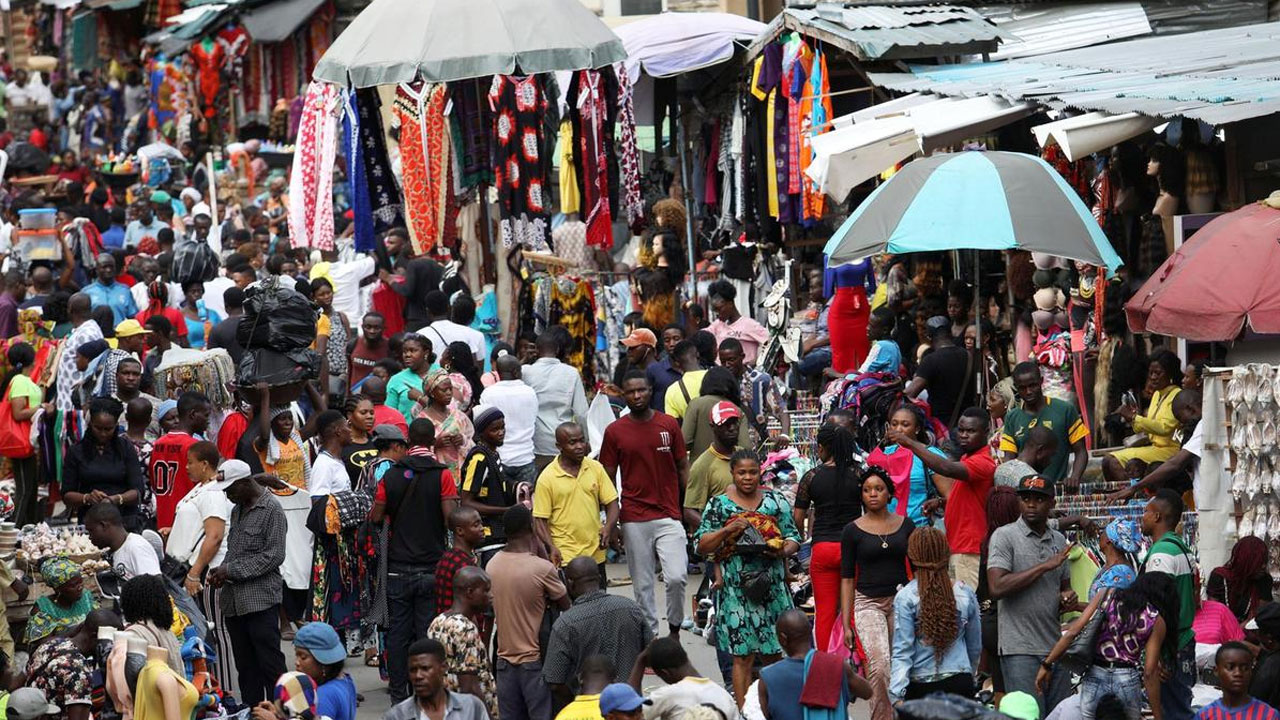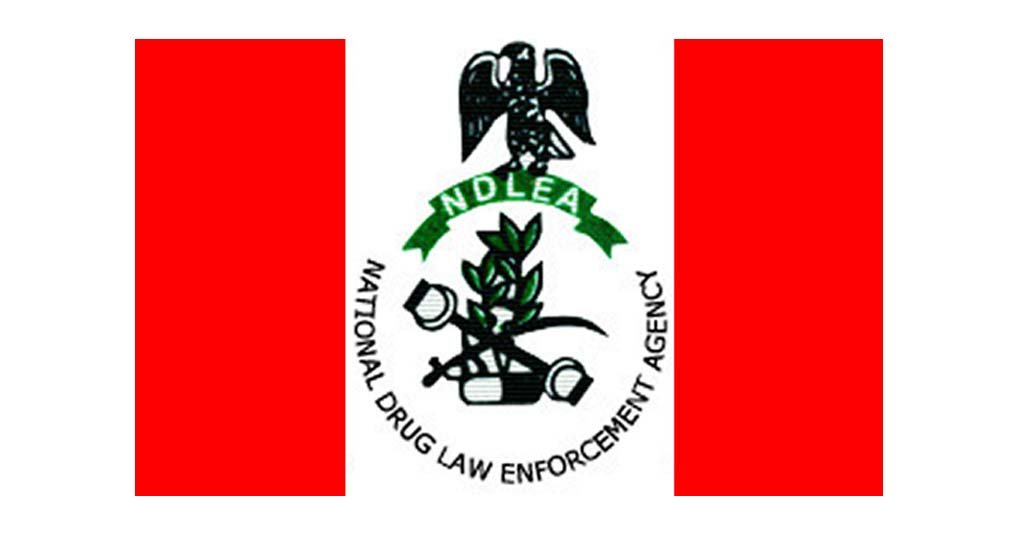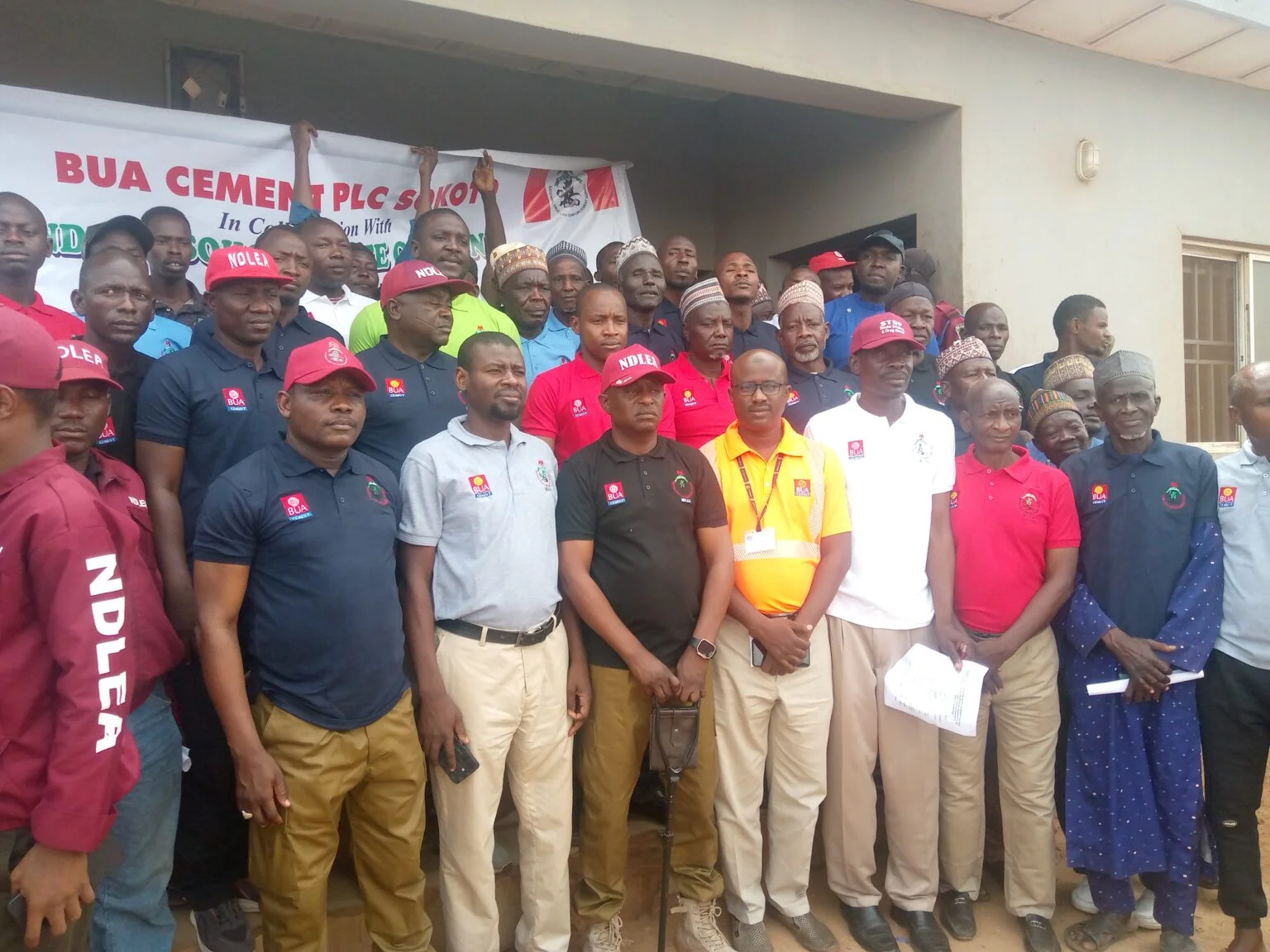Headlines
NBS: Inflation Rate Surges to 20.52%, Highest in 17 Years

The Consumer Price Index (CPI) which measures the rate of change in prices of goods and commodities rose to 20.52 per cent year-on-year in August, compared to 17.01 per cent in the corresponding period in 2021, the National Bureau of Statistics (NBS) disclosed on Thursday.
The CPI had risen to 19.64 per cent in July 2022.
The latest inflation figure was the highest inflation rate the country has recorded in 17 years.
The inflation figures came just as the Director, Corporate Communication Department, Central Bank of Nigeria (CBN), Mr. Osita Nwanisobi, Thursday expressed concern that the attitude of Nigerians towards foreign goods and services was one of the major challenges affecting the nation’s economy.
The statistical agency said the 3.52 per cent rise indicated that the headline inflation rate increased in August 2022 when compared to the same month in the preceding year.
According to the CPI report for August 2022, which was posted on the NBS website, food inflation stood at 23.12 per cent on a year-on-year basis in the period under review, which was 2.82 per cent higher than the 20.30 per cent recorded in August 2021.
However, core inflation, which excludes the prices of volatile agricultural produce stood at 17.20 per cent year on year in August, up by 3.79 per cent when compared to 13.41 per cent recorded in August 2021.
The NBS pointed out that the rise in food inflation was caused by increases in prices of bread and cereals, food product, potatoes, yam, and other tubers, fish, meat, oil, and fat.
Month-on-month, food inflation stood at 1.98 per cent in August, representing 0.07 per cent decline compared to the 2.04 per cent recorded in July.
On the other hand, the core index recorded the highest increases in prices of gas, liquid fuel, solid fuel, passenger transport by road, passenger transport by air, fuel and lubricants for personal transport equipment, cleaning, repair, and hire of clothing.
On a month-on-month basis, core inflation stood at 1.59 per cent in August, down by 0.17 per cent when compared to 1.75 per cent recorded in the preceding month.
Also, year-on-year, the urban inflation rate stood at 20.95 per cent, which was 3.36 per cent higher compared to 17.59 per cent recorded in August 2021.
On a month-on-month basis, urban inflation stood at 1.79 per cent in August, representing a 0.03 per cent decline compared to 1.82 per cent in July.
On the other hand, the rural index year on year stood at 20.12 per cent, representing 3.69 per cent increase over the 16.43 per cent recorded in the preceding year.
Also, month-on-month the rural inflation was 1.75 per cent, down by 0.06 per cent compared to 1.81 per cent in July.
However, at state level, the inflation rate on a year-on-year basis was highest in Ebonyi 25.33 per cent, Rivers 23.70 per cent, Bayelsa 23.01 per cent.
On the other hand, Jigawa 17.30 per cent, Borno 17.56 per cent and Zamfara 18.04 per cent recorded the slowest rise in headline inflation.
Month-on-month, however, the highest increases were recorded in Anambra 2.78 per cent, Ondo 2.53 per cent, Nasarawa 2.40 per cent, while Yobe 0.68 per cent, Borno 0.84 per cent and Zamfara 0.98 per cent recorded the slowest rise in inflation.
Also, year-on-year, food inflation was highest in Kwara 30.80 per cent, Ebonyi 28.06 per cent and Rivers 27.64 per cent, while Jigawa 17.77 per cent, Zamfara 18.79 per cent and Oyo 19.80 per cent recorded the slowest rise.
Month-on-month, however, food inflation was highest in Anambra 3.05 per cent, Ondo 2.92 per cent and Bauchi 2.78 per cent, while Yobe 0.46 per cent, Oyo 0.89 per cent and Delta 0.94 per cent recorded the slowest rise.
However, reacting to the inflation outcome, Chairman, Chartered Institute of Bankers of Nigeria (CIBN), Abuja Branch, Prof. Uche Uwaleke, said the increase in headline inflation above the psychological threshold of 20 per cent did not come as a surprise in view of the rising inflation trend in many economies partly caused by the Russian Ukrainian conflict.
It’s interesting to note that the NBS, in its latest CPI report, he said the NBS also provided a clue as to the major factors driving the inflationary pressure in Nigeria namely supply disruptions and the rising cost of production.
Uwaleke said “In the light of this revelation, what becomes clear is that the recent monetary policy tightening stance of the CBN alone may not address the challenge.
“The government needs to formulate and implement complementary fiscal policies aimed at boosting food supply as well as reducing firm’s cost of production.”
Also commenting on the development, the Chief Executive Officer, Eczellon Capital, Diekola Onaolapo cited domestic constraints.
He said: “The figures should surprise anyone; it is tragic that things are going this way. However, our inflation is often imported, and given the trajectory of the foreign exchange rate over the past few months has been. It is not a good development but not surprising.”
He added: “Considering inflation measures and changes in pricing from period to period, you’ll expect that after a while, it begins to taper off but the year-on-year comparison is going to continue but month-on-month would begin to taper off at some point.”
On his part, the Head, Financial Institutions Ratings at Agusto & Co, Mr. Ayokunle Olubunmi said: “I don’t think the figures are actually surprising given what we’re seeing globally and also with the country, I’m sure nobody is surprised by what we are seeing. Also, the exchange rates played a part because we largely import.”
“For the rest of the year, we think there would actually be an increase. The momentum will actually continue however, there will be a slowdown and the rate of increase is going to reduce. For us, we are projecting that the average inflation for the year would not exceed 19 per cent. The rate increase is going to reduce. It is going to increase at a decelerating rate.”
CBN: Nigerians’ Attitude to Foreign Goods, Impacting Economy Negatively
Meanwhile, Nwanisobi on Thursday said the attitude of Nigerians towards foreign goods and services was one of the major challenges affecting the nation’s economy.
The CBN Director, who noted that in the past 15 years, the country had survived several challenges, said Nigerians need to contribute to the development and stability of the nation’s economy by cutting down on their appetite of foreign goods.
He listed some of the activities in the past that hindered the growth of the nation’s Gross Domestic Product (GDP) to include economic recession, COVID-19 pandemic, oil theft, insecurity, among others.
He berated Nigerians’ appetite for foreign goods which he said leads to pressure in the forex market and naira depreciation.
The CBN director spoke yesterday, during an enlightenment fair organised by the CBN for business operators, banks, farmers, cooperative societies, NYSC members and workers of various establishments, held in Port Harcourt, Rivers State.
Speaking at the programme with the theme: “Promoting Financial Stability and Economic Development,”
Nwanisobi, who was represented by the Deputy Director, Corporate Communication Department, Central Bank of Nigeria (CBN), Mr. Samuel Okogbue, said the Enlightenment Fair would educate the participants on their various business activities that affects the economy.
“CBN is about the economy and the economy is about the people. We are here to interact with you about economy as to be conscious of what you are doing that impacts on the economy.
“The essence of our coming here is not only to tell you what CBN is doing. We also want to appreciate you, to think with you about our economy so that we will be conscious of what we are doing and how your businesses and other activities impact on our economy.
“In the last 15 years we have passed through many problems such as economic recession, COVID-19 which have impacted on the economy. We are battling with insecurity, oil theft and the urge for foreign goods which affects the nation’s Gross Domestic Product, GDP.
“We consume foreign goods, everything we consume are foreign based and all this affects the foreign exchange rates. Our attitude to foreign goods is affecting our economy. This enlightenment fair will educate you on consumer protection, currency operations, payment management system, development finance and eNaira,” he said.
In his remarks, the CBN Port Harcourt branch Controller, Maxwell Okafor, said the fair was aimed at disclosing the activities of CBN to the participants and what is required of them to secure their businesses and operate a free market economy.
Also, the CBN Assistant Director, Consumer Protection Department, Damola Atanda; Chika Ugwueze, CBN Assistant Director, Payment System, and Stanley Oruyeigha, Head Development Finance Department, enlightened participants on issues concerning consumer protection, payment system and development finance.
One of the participants and programme manager, Rivers State Agricultural Development Programme (ADP), Mr. Vitalis Chindah, commended the CBN for their interventions in area of agriculture product in the state and across the nation.
He urged the CBN to do more in encouraging the so many yearnings farmers who need finance to upgrade their business
Headlines
Akwa Ibom APC Gears Up to Receive President Tinubu as Governor Umo Eno Joins Party

The All Progressives Congress (APC) in Akwa Ibom State has announced its readiness to host President Bola Ahmed Tinubu and other top party leaders as it officially welcomes Governor Umo Eno into its ranks.
Speaking at a press briefing in Uyo on Friday, APC chieftain and former presidential aide, Senator Ita Enang, disclosed that the party was fully prepared to receive the president, Vice President Kashim Shettima, APC National Chairman, and governors elected on the party’s platform for the historic reception.
Governor Umo Eno had on June 6 formally defected from the Peoples Democratic Party (PDP) to the APC, in a move widely described as a political game-changer in Akwa Ibom.
Enang, a former Special Assistant to the President on National Assembly and Niger Delta Affairs, said the governor’s defection had effectively aligned the state with the central government.
He assured Governor Eno and his supporters that the APC would embrace them wholeheartedly and honour all agreements reached.
“As progressives, we shall work with the governor and his supporters to ensure that they fit into the party without hitches,” Enang stated. “We will also work with them to align programmes of the state government with the ideals and manifesto of the party.”
He further described the governor’s move as a “merger” that promises significant benefits for Akwa Ibom and its citizens.
The planned reception is expected to mark a major political event in the state, signaling a realignment of forces ahead of future elections.
Headlines
Ekiti Launches Aggressive Anti-Flood Campaign, Dredges Ofigba River

The Ekiti State Government has intensified efforts to prevent flooding across the state with the launch of a comprehensive dredging campaign, targeting critical waterways in both rural and urban areas.
Chairman of the Ekiti State Environmental Protection Agency (EKSEPA), Chief Bamitale Oguntoyinbo, disclosed this on Friday during an inspection visit to the ongoing dredging project at the Ofigba River in Ise-Ekiti.
Oguntoyinbo, who was accompanied by EKSEPA board members, said the visit was to assess the progress of work being carried out to mitigate flood risks in the community. He expressed satisfaction with the pace and quality of the dredging work.
“I and other board members of EKSEPA are delighted with the level of job done by the site engineer because he is actually working with the directives of three-kilometer dredging of waterways,” he said.
According to him, the dredging commenced on June 4, and so far, 1.8 kilometers of the river have been successfully cleared.
He applauded Governor Biodun Oyebanji for prioritizing the safety and welfare of residents by initiating the state-wide anti-flooding campaign.
“I want to commend our amiable governor, Mr. Biodun Oyebanji, for embarking on zero tolerance campaign against flooding in every community and town in Ekiti,” Oguntoyinbo stated.
He also praised the General Manager of EKSEPA, Mr. Olukayode Adunmo, for his commitment to the project’s supervision and success.
In his remarks, Adunmo emphasized the urgent need to clear waterways choked by refuse, which impede water flow and contribute to flooding during the rainy season.
“Dredging of Ofigba River in Ise-Ekiti in Ise/Orun Local Government Area is necessary because some of the waterways have been blocked by refuse,” he explained. “There is the need for us to remove every blockage to enhance free flow of water and avert flooding during heavy rainfall.”
Adunmo also commended Governor Oyebanji for taking proactive steps to protect lives and properties across the state.
Residents of Ise-Ekiti have welcomed the government’s intervention. Chief Godwin Ojo, a community leader, expressed gratitude to the governor for his timely action.
“We thank the governor for the move to avert flooding in our community,” Ojo said. “May God grant him more wisdom to pilot the affairs of the state to an enviable height.”
The dredging campaign forms part of the Oyebanji administration’s broader commitment to environmental safety and disaster prevention.
Developmental
Tinubu to visit Kaduna Thursday to inaugurate key projects

President Bola Tinubu is expected in Kaduna State Today Thursday for the inauguration of several key developmental projects executed by the administration of Gov. Uba Sani.
The News Agency of Nigeria (NAN) reports that the visit forms part of activities marking Sani’s two years in office.
The projects lined up for inauguration include the 300-bed Specialist Hospital in Millennium City, Kaduna, built by the state government to bolster the provision of healthcare services.
Tinubu will also inaugurate the Institute of Vocational Training and Skills Development in Rigachikun, road projects in Soba, and Samaru Kataf LGA’S as well as the 24-kilometre Kafanchan Township Road.
Others are the Tudun Biri Road, the 22km road linking Kauru and Kubau LGAs as well as the Vocational and Skills Training Centre in Tudun Biri.
Tinubu is also expected to unveil 100 Compressed Natural Gas (CNG) buses, as part of efforts to modernise the state’s public transportation system.
The projects are part of the administration’s focus on infrastructurde evelopment, healthcare delivery, youths empowerment, and economic growth.
The state government described the visit as a significant moment for the people of Kaduna and an opportunity to showcase ongoing efforts to transform the state through impactful governance.
Sani, who marked his second year in office this month, has prioritised human capital development, rural infrastructure, and jobs creation since taking office in 2023.
Tinubu’s visit to Kaduna State was rescheduled from Wednesday to Thursday.
He was initially supposed to visit Kaduna on Wednesday, but due to the recent attacks in Benue, he shifted his trip.
The president visited Benue on Wednesday to commiserate with the victims of the recent attacks and assess the humanitarian crisis.
During his visit to Benue, Tinubu met with stakeholders, including traditional rulers, political and community leaders, and youth groups, to seek lasting solutions to the hostilities.
He also condemned the ongoing violence and called on the residents to embrace peace and mutual understanding.
NAN recalls that the Benue Government had declared a work-free day for Tinubu’s visit, urging the residents to turn out in large numbers to welcome him.
-

 Headlines3 years ago
Headlines3 years agoFacebook, Instagram Temporarily Allow Posts on Ukraine War Calling for Violence Against Invading Russians or Putin’s Death
-

 Headlines3 years ago
Headlines3 years agoNigeria, Other West African Countries Facing Worst Food Crisis in 10 Years, Aid Groups Say
-

 Foreign3 years ago
Foreign3 years agoNew York Consulate installs machines for 10-year passport
-

 News10 months ago
News10 months agoZero Trust Architecture in a Remote World: Securing the New Normal
-

 Entertainment3 years ago
Entertainment3 years agoPhyna emerges winner of Big Brother Naija Season 7
-

 Headlines1 year ago
Headlines1 year agoNigeria Customs modernisation project to check extortion of traders
-

 Economy1 year ago
Economy1 year agoWe generated N30.2 bn revenue in three months – Kano NCS Comptroller
-

 Headlines1 year ago
Headlines1 year agoPhilippines’ Vice President Sara Duterte resigns from Cabinet














